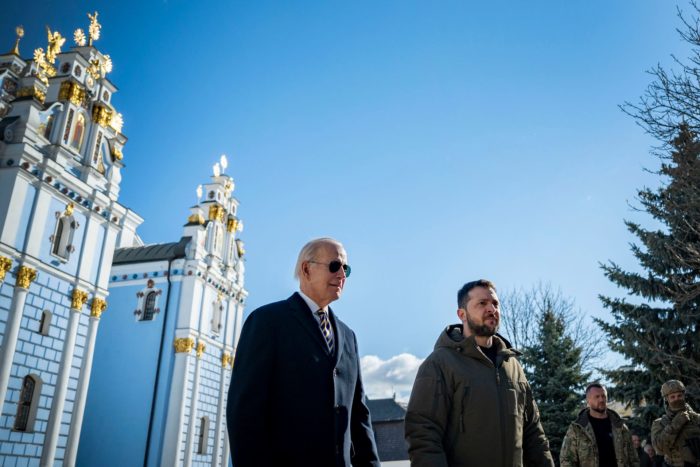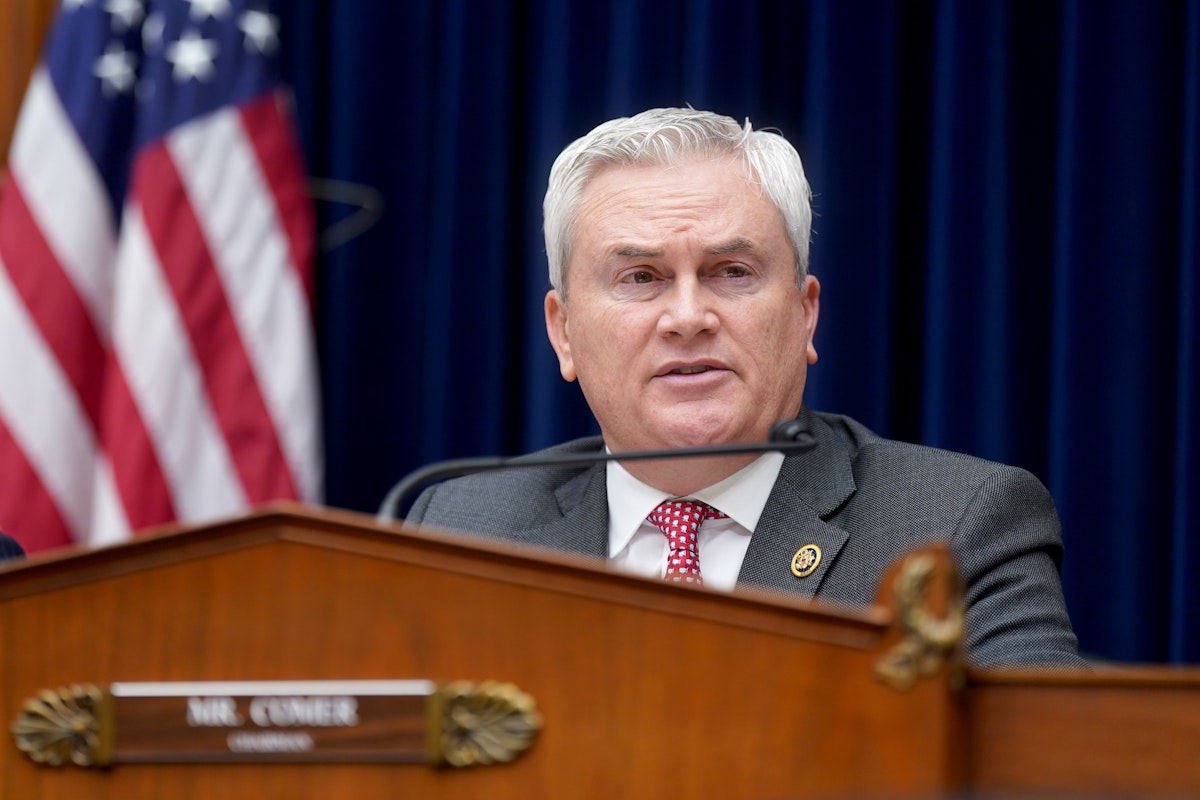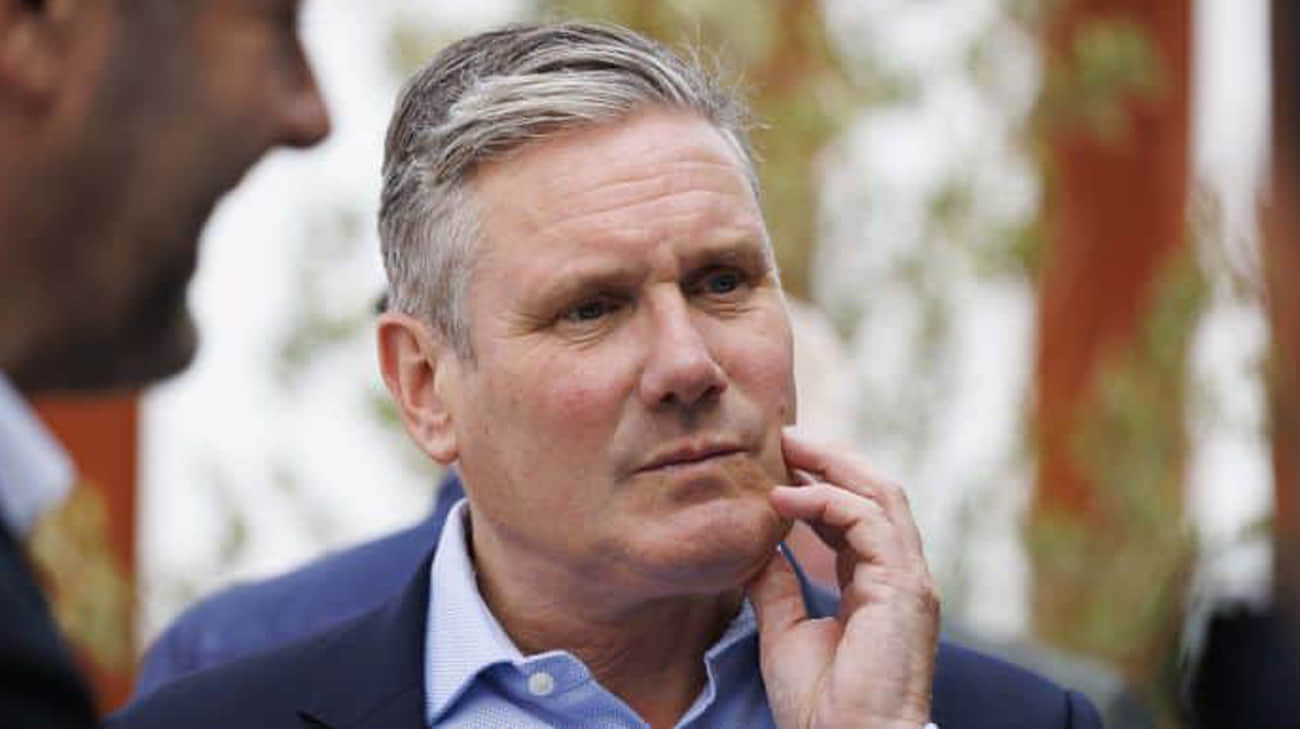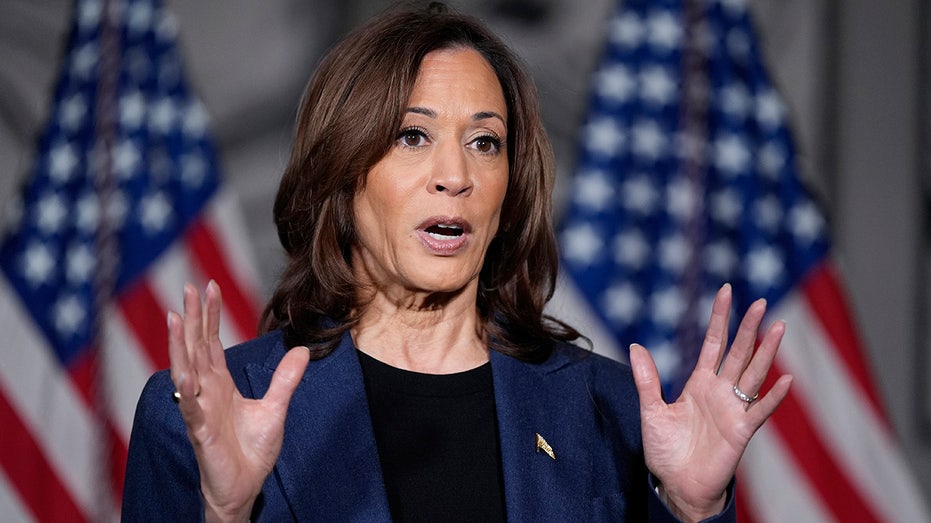Making Ukraine aid conditional on reforms is a terrible idea
Besides Russia, ignorance of Ukraine's plight in the West also threatens its survival The post Making Ukraine aid conditional on reforms is a terrible idea appeared first on Euromaidan Press.

Three years ago, I argued that Zelenskyy was solving the wrong war. Today, as Ukraine is fighting for its existence, the West has ended up in the same predicament.
The US, NATO, and the EU are presently “solving the wrong war.”
Ukraine is not about to be defeated militarily. It is in the process of being defeated financially.
While most eyes are locked on the brutal land war being fought along the frontline in Luhansk, Donetsk, Zaporizhzhia, and Kherson oblasts, the Russian airstrikes, missiles, and UAV strikes against both Ukrainian frontline positions, cities, settlements, and critical infrastructure and not least, the maritime blockade of Ukrainian ports, Ukraine is, in fact, fighting a hybrid war.
This understanding is crucial to establish an effective counterstrategy.
The conventional war is a part of the Russian hybrid war in Ukraine (and against the West). Many experts will disagree, as hybrid war is often described as a grey zone operation below the threshold of war. However, this is a theoretical appraisal that does not meet the realities of the war.
Hybrid War is the parallel and synchronized use of both military and non-military means to destabilize nations from within. Synchronization is the ability to effectively coordinate the employment of both military and non-military means in time, space, and purpose to create the desired effects. It allows Russia to “escalate” or “de-escalate” horizontally rather than just vertically, thus providing further options.
In this context, horizontal escalation or de-escalation refers to the many instruments of power being applied in parallel. For example, by escalating the military aggressions, and simultaneously intensifying its diplomatic, political, economic, and information efforts, Russia can achieve effects greater than through a one-dimensional military effort only. Instead of only military gains, Russia ensures multiple effects across NATO, EU, and Ukraine (e.g., impact on foreign policy, diplomatic initiatives, bilateral relationships, finance markets, costs of living, information sphere, public opinion, fear, and more).
What happened on 24 February last year was a horizontal and vertical escalation. A shift from the focus on the non-military to the employment of military power – BUT – still using all tools. It is still a Hybrid War.
It is still the same aggressor, with the same strategic aim and objectives, employing the same tools.
Seen through the prism of hybrid war, Russia does not need to take another centimeter of Ukrainian territory to defeat Ukraine. It will, however, attempt to do just that out of pride, revenge, and not least, as a justification of its strategic narrative for its so-called “special military operation”: To protect “citizens of Donbas from a “genocide,” “de-nazify,” and “de-militarize” Ukraine.
Its potential victory, however, will not be decided on the battlefield alone. The combined efforts of its military and non-military means are seeking to undermine Ukraine economically.
Russia might still succeed because the West is focusing its efforts on the “wrong war.” While the international community is offering comprehensive humanitarian, financial, and defense support to Ukraine, it is not providing the support needed to avoid a future economic collapse.
Both the EU and the US have proven my point.
In November 2022, the European Parliament approved an €18 billion loan to Ukraine to cover essential public services, macroeconomic stability, and rehabilitation of infrastructure.
The loan was made conditional on reforms.
The US has recently followed in the footsteps of the EU. A letter from the White House highlights reforms that Ukraine must implement to continue to receive aid. According to the media, the letter has been sent to both the Donor Coordination Platform, the Ukrainian Prime Minister, and the Office of the President of Ukraine. The document outlines the necessary changes in order of priority: 0-3 months, 3-6 months, one year, and 18 months. The reforms focus on the functioning of the Supervisory Boards of state-owned businesses, anti-corruption bodies (the Specialised Anti-Corruption Prosecutor’s Office, National Anti-Corruption Bureau of Ukraine, National Agency for Corruption Prevention, etc.), the High Council of Justice, and the judiciary in general.
According to Politico, the US State Department has prepared a secret strategy for Ukraine with a strong anti-corruption focus. A report obtained by Politico details specific reform requirements and warns Western support may hinge on cutting corruption.
“The ‘sensitive but unclassified’ version of the long-term US plan lays out numerous steps Washington is taking to help Kyiv root out malfeasance and otherwise reform an array of Ukrainian sectors. It stresses that corruption could cause Western allies to abandon Ukraine’s fight against Russia’s invasion, and that Kyiv cannot put off the anti-graft effort. […]
The media believes that the Biden administration wants to put pressure on Ukraine to reduce bribery because American aid is at stake.”
Future US financial – not defense – support will most likely also be made conditional on reforms.
While I full-heartedly support the need for Ukraine to reform and that international support is needed for it to succeed in its bid to become an EU and NATO member, making further financial support conditional on reform is outright counter-productive.
The problem is that Ukraine is not about to be defeated militarily. It is in the process of being defeated financially.
While the military situation is still very much dynamic, Ukraine has so far been able to both stop Russian advances and force it to withdraw. It has liberated more than 54% of the territories Russia occupied after 24 February. Ukraine presently has the initiative in all dimensions.
While all of that might change in the medium to long term, the most imminent threat to Ukraine’s independence and sovereignty is its economy.
Ukrainian cities and settlements are subject to massive and methodical destruction by Russia. The total amount of direct damage to Ukraine’s infrastructure caused due to the war as of June 2023 exceeded $150 billion. 167,200 residential buildings have been destroyed or damaged. Ukraine’s industrial base is being destroyed. With 174,000 square kilometres of territory mined, it has become the most mined country in the world.
A joint assessment from March 2023 by the Government of Ukraine, the World Bank Group, the European Commission, and the United Nations, estimated that the cost of reconstruction and recovery in Ukraine to US $411 billion. Seven months later, the costs have increased.
Ukraine has also lost access to the sea and its maritime resources in its Maritime Exclusive Economic Zone. The maritime cluster – and therefore the Ukrainian economy – is greatly suffering from the Russian maritime blockade and its continuous attacks on its ports and infrastructure. Since 18 July, Russian forces attacked Ukraine’s ports more than 120 times. About a third of the infrastructure has been damaged or destroyed. Consequently, grain exports to Asia, Africa and Europe have been reduced by almost 3 million tonnes per month.
Ukraine is crucially dependent upon international financial support to remain an economically viable, independent, and sovereign state. It needs $ 5 – 7 billion in support every month to function.
That is why it has reacted harshly to Poland and Hungary’s ban on Ukrainian grain. All exports are presently fundamentally important to its survival.
“It is alarming to see how some in Europe, some of our friends in Europe, play out solidarity in a political theatre – making a thriller from the grain,” Zelenskyy said on Tuesday. “They may seem to play their own role but in fact, they are helping set the stage (for) a Moscow actor.” (President Volodymyr Zelensky, United Nations General Assembly, 19 September 2023)
If the financial support is undermined, Ukraine will falter and collapse. Making financial support conditional, thereby empowering the agents that have been countering reforms since 2014, might prove to be a tremendous mistake.
The moment the EU and the US deny Ukraine financial support for lack of reforms, its defeat is imminent. Any stop in support – that being defense, financial, or humanitarian – will help Russia to defeat Ukraine. Equally important, it will also directly undermine European security and stability.
Ukraine is fighting a hybrid war. Western counterstrategy must reflect the facts.
The notion of making financial support conditional on reforms is downright absurd and goes to the heart of the Hybrid War: It helps Russia to be victorious through the parallel and synchronized use of both military and non-military means.
Ukraine is facing two enemies threatening its very existence.
The Russian Federation is recognized as Enemy No. 1. International ignorance is Enemy No. 2.
European security is fundamentally and inevitably linked to Ukraine. Still, ignorance makes countries act in a manner that runs counter to their interests.
Hungary is still acting as a pro-Russian agent in the EU and NATO. Bulgaria is still struggling to counter Russian disinformation and its effect on the public. Slovakia has just elected a pro-Russian and anti-liberal politician as its next Prime Minister. Poland’s ruling party is actively undermining Western unity and the Ukrainian economy to secure another victory in the forthcoming election. Germany and France are still failing to recognize the fundamental threat Europe is facing and to commit in favor of Western security and stability fully.
And then there is the (not so) United States of America.
Stopping essential aid to Ukraine – temporary or not – means stepping back from its pledge to help ensure the freedom and security of the Alliance. The West is exposed to Russian aggression already. Russia has declared its demands for European concessions, including its requirements for a special sphere of influence over parts of NATO’s territory. It has effectively vetoed NATO membership for some European countries. Its blatant violation of the UN Charter and international laws has endangered European security and stability.
European security is fundamentally and inevitably linked to Ukraine. NATO’s mission is, therefore, also directly connected to Ukraine’s victory. Defense, financial, and humanitarian support to Ukraine is not optional.
The decision to stop support to Ukraine is a result of ignorance.
President Biden and his allies in Europe must change their strategic narrative. The war can no longer be described as a “Russia-Ukraine war.” It must be described as what it is: A broader confrontation instigated by Russia against the West. A Russian victory in Ukraine will help escalate the confrontation, putting the security and stability of the West at risk.
President Biden is scheduled to give a major speech on why it is necessary to continue to help Ukraine. Hopefully, it will mark a fundamental shift in his rhetoric. It might help turn the public decline in its support for arms supply to Ukraine and, consequently, Congress itself.
Biden needs to start listening to both serving and retired admirals and generals. They are increasingly outspoken, arguing that a failure to support Ukraine will cause more conflicts globally.
Lt. Gen. (Ret.) James M. Dubik is the latest to point out the consequences of letting the aggressions of an aggressive dictator go unanswered for too long. Pointing to the horrendous costs of WW2, he points out that
“American and European leaders worked together to fashion post-war European security, economic, and political institutions that were mutually beneficial to all — including America.
The predecessors of current American and European political, diplomatic, economic and military leaders met the difficult challenges they faced following World War II. Too many current leaders seem bent on destroying that work, not sustaining it. Structuring a successful way ahead was not easy in the post-World War II period, and it’s not easy now. If the voices of the ‘Greatest Generation‘ could whisper advice to today’s leaders, it might be: End this war before it spreads. If you think it’s hard now, it can get worse. The world needs American leadership — so, lead.”
His voice is joined by a group of 100 conservative policy experts. They are mounting a public push to convince members of Congress to provide Ukraine with more aid, stressing that a Russian victory will have severe ramifications for America’s national security.
“Efforts to stop our aid to Ukraine could lead to a Russian battlefield victory, with catastrophic effects for American security. Putin would eye the next stage of the Russian empire’s restoration, and China would have a green light to take Taiwan.”
Additionally, they are also highlighting the many positive side-effects the US support has for its own economy and employment rate. Supporting Ukraine is not charity – or an expense – it is an investment. They highlight, however, that supporting Ukraine does not mean endorsing President Biden’s approach.
They call upon him to be tougher, stronger, and more strategic.
In a sense, they are asking Biden to act according to NATO’s strategic concept from 2010: Stop a war that threatens the security of the Alliance.
Let’s hope President Biden and his allies and partners in Europe decide to start fighting ignorance.
Stopping the aid for Ukraine – temporary or not – creates ambiguity at a time when strategic messaging needs to be transparent. It leads to the risks of yet more strategic miscalculations globally.
The post Making Ukraine aid conditional on reforms is a terrible idea appeared first on Euromaidan Press.



